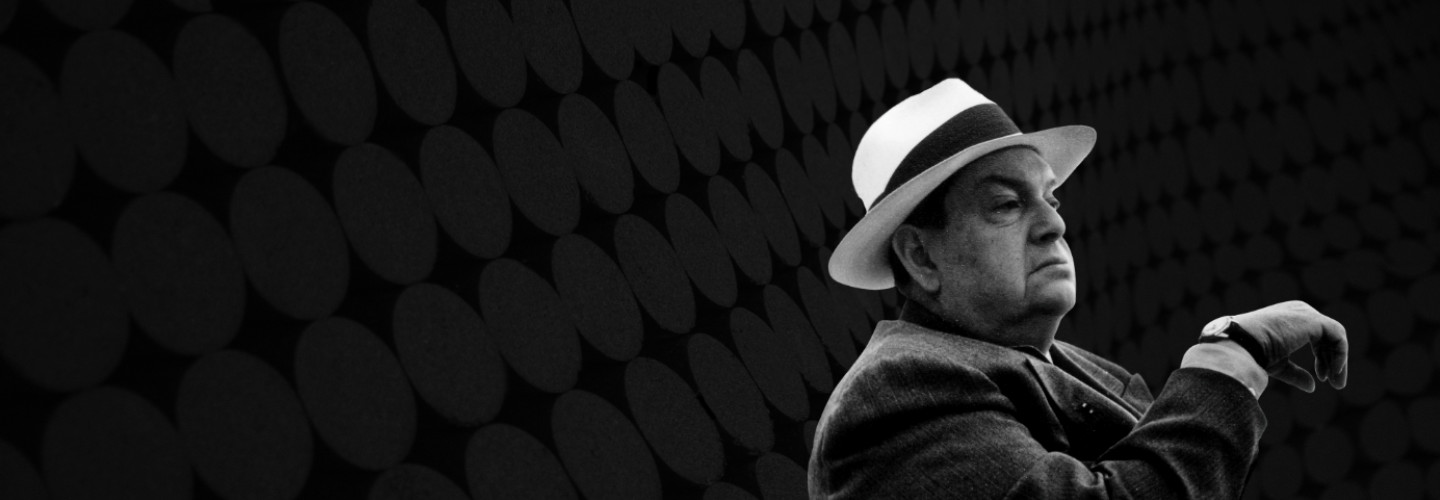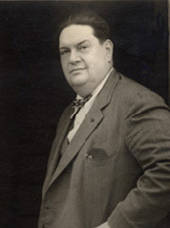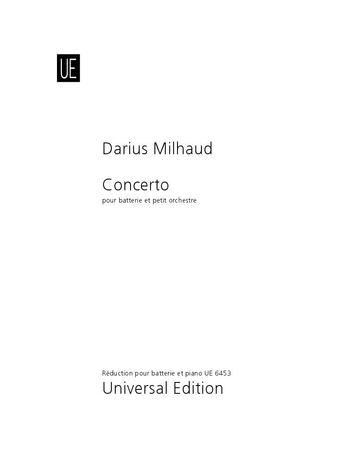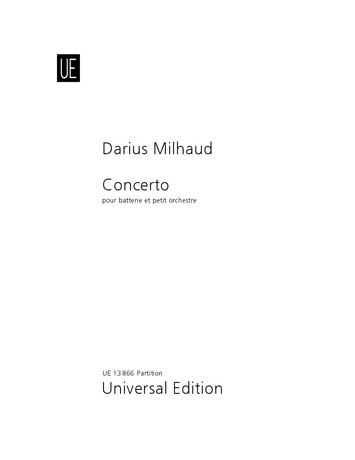

Darius Milhaud
Konzert
Short instrumentation: 2 0 2 0 - 1 0 1 0 - str(6 6 4 4 2)
Duration: 7'
Dedication: à Paul Collaer
Solos:
percussion
Instrumentation details:
2 0 2 0 - 1 0 1 0 - str.: 3. 3. 2. 2. 1
Milhaud - Konzert for percussion and small orchestra
Printed/Digital
Translation, reprints and more

Darius Milhaud
Milhaud: Concerto for percussion and small orchestra - op. 109Orchestration: for percussion and small orchestra
Type: Klavierauszug

Darius Milhaud
Milhaud: Concerto for percussion and small orchestra - op. 109Orchestration: for percussion and small orchestra
Type: Partitur
Sample pages
Audio preview
Work introduction
I have always been very interested in percussion problems. In the Choéphores and in L’homme et son désir I used massive percussion. Is it the research done by Berlioz in this field that led me in that direction? Maybe! After the audition of Choéphores in Brussels, an excellent kettledrummer, Theo Coutelier, who had a percussion class in Schaerbeek near Brussels, asked me if I would like to write a concerto for only one percussion performer. He wished to use his piece for his examinations. The idea appealed to me, and this is how I came to compose the concerto. The school at Schaerbeek had only a few orchestral musicians: two flutes, two clarinets, one trumpet, one trombone and strings. The concerto consists of two parts connected together. It is a dramatic work. In view of the fact that when I composed it (between 1929 and 1930 in Paris), jazz was enjoying a decisive influence on musical composition. I wanted to avoid at any cost the thought that anyone might think in that kind of work, and so I therefore stressed the rough and dramatic part of the piece. This was also why I did not write a cadence and always refused that anyone adds one on.
The debut of the Concerto was given under my direction by Theo Coutelier, at the Palais des Beaux-Arts, in Brussels, in 1930. I will add that I am always pleasantly surprised to see that this concerto is often performed in high schools in the United States by young students who play by heart and brilliantly.
Darius Milhaud
